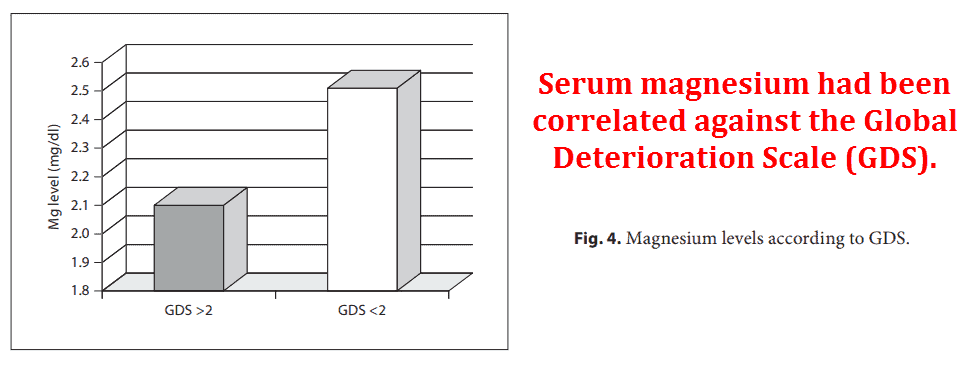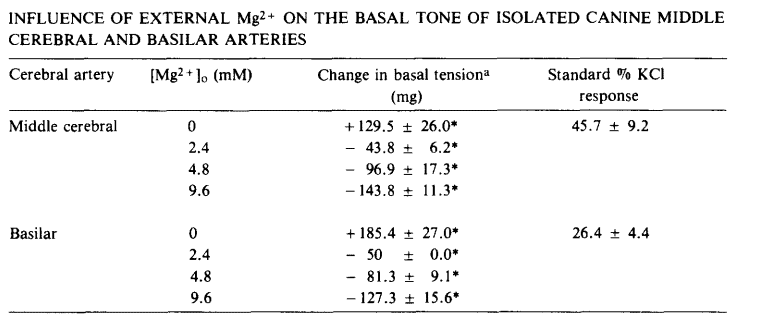Better blood flow helps the brain, it helps the heart, it even helps the male member…
—-Important Message—-
My length and girth secret unlocks a man’s FULL size potential

- NO pulling or stretching
- NO tying anything to your member
- NO weird devices or pumps
- NO expensive extenders
- NO risks of injury or disfigurement
Discover how my length and girth secret works
———-
How to safely boost magnesium levels and boost blood flow
Magnesium is a mineral often neglected, one generally given less consideration than the other main physiological ions: Ca2+, Na+, and K+.
Much of this neglect can be explained by its lower plasma and whole-body concentrations when compared to the others.
But this neglect can also be explained because magnesium is absorbed passively and doesn’t have any interesting physiological control mechanisms to investigate.
Calcium regulation, on the other hand, is under the hormonal influence of vitamin D and parathyrin. The physiological Na+/K+ ratio is controlled by aldosterone and renin, so as with Ca2+ both a steroid hormone and a protein hormone are involved.
Yet there’s also influence from the dairy industry, a powerful organization that trumpets the benefits of calcium to the exclusion of all others.
Of course, we do need Ca2+ for many things, but focusing the spotlight on just one ion makes the others seem relatively unimportant by comparison.
But magnesium is also quite important, as you will see…
‘Magnesium is one of the most vital elements of the body. It activates about 300 enzymes and is involved in the regulation of cellular permeability and neuromuscular excitability. Probably magnesium deserves more attention than is usually given.’ ―Ebel
In other words: saturating the airwaves with pro-calcium information dilutes the benefits of magnesium, which doesn’t have a powerful industry to promote it.
Calcium and magnesium appear to be competitive everywhere, displacing each other in magazines and newspapers just as they do in muscle experiments (Ebashi, 1968).
Yet despite being absorbed passively and not under hormonal control, plasma magnesium levels do generally stay within a tight range.
This is because most Mg2+ is bound to proteins and the outer layer of bone, dissociating as needed while buffering plasma concentrations.
Excess magnesium is eliminated within days, making it one of the safest ions to supplement. The relaxing effects are immediately apparent, allowing one to gauge plasma levels by feel and preventing overconsumption.
It is also bitter.
Even though most people on reasonable diets have acceptable levels, insufficiency does occur and its importance cannot be understated.
‘To summarize, it is evident that due to its additive actions on enzymes and cellular structures magnesium is involved in most reactions of carbohydrate, lipid, nucleic acid and protein metabolism. Therefore all energy producing reactions (oxidative phosphorylation) as well as all energy consuming reactions (contraction) are dependent on magnesium.’ ―Ebel
Low levels are induced by chronic alcohol intake, which has been shown to increase its elimination more than all others.
After ingesting or less than an airplane-bottle’s worth of Everclear, i.e. 30 mL of absolute ethanol, the elimination of magnesium had increased 167% (Kalbfleisch, 1963).
Chronic alcoholics are so notoriously magnesium deficient that when they also have mental changes, it is often explained by a deficiency of that ion (Steindig-Lindberg, 1974).
Low thiamine and high ammonia are also worthy of consideration in alcoholic encephalopathy.
And Alzheimer’s has also been linked to low brain magnesium concentrations, a condition in its own right sometimes termed hypomagnesemic encephalopathy.
‘In magnesium-deprived cells the rates of DNA, RNA and protein biosynthesis are impaired.’ ―Ebel
Low levels of magnesium can have negative effects on cognition because it’s central to DNA synthesis, sugar metabolism, microtubule elongation, and muscle relaxation.
Although skeletal muscle has little to do with dementia, as evidenced by Lou Gehrig’s disease, arteries also have characteristic muscle proteins.
This is how Ca2+ and Mg2+ control blood pressure, through acting on arterial contractile proteins. The Na+ and K+ ions control blood pressure by determining plasma volume, yet Ca2+ and Mg2+ do it through arterial tone.
So it should be no surprise that too much calcium and/or too little magnesium can cause cerebral ischemia, a constriction of the blood supply leading to the brain.
So just knowing about what magnesium does you might even expect low levels to be associated with dementia.
And indeed, they are in fact correlated.
Having a proper Ca2+/Mg2+ intake is one step towards preventing dementia at any age. Magnesium influences cerebral blood flow, glucose metabolism, microtubule elongation, and even functions to exclude aluminum from the brain.

This study had included 34 controls and 37 patients having Alzheimer’s, a medical diagnosis which has pretty much come to mean simply “advanced dementia.”
They had taken care to exclude patients with, “a history of alcohol abuse,” no doubt as they knew of its ability to specifically deplete magnesium from the body.
They also applied cognitive tests, and made comparisons between serum Mg2+ and performance scores.

They found significant correlations between dementia and serum magnesium.
Although they also determined concentrations of serum vitamin B12 and “folic acid,” they did not remark upon those results.
This is suggestive of a causative effect, not merely an associative one, because magnesium supplementation has been shown to improve memory in rat studies and cognitive test scores in humans (Glick, 1990).
‘These studies also support the fact that Mg administration can improve cognitive symptoms and can reduce other symptoms of dementia in various types of dementia.’ ―Çilliler
Precluding some sort of bias on their part, it could be assumed that differences in magnesium had been more significant than the two B-vitamins also measured, and thus not reported for that reason.
This is saying a lot, as folate and B12 are both classic dementia biomarkers (along with thiamine).
And this finding is consistent: low magnesium in dementia has also been reported by many others.
Reductions in plasma Mg2+ concentration were reported over two decades ago, with no significant difference in Ca2+ (Lemke, 1995).
Similar findings have even been reported in whole brain tissue (Andrási, 2000).
‘Mg values are found to be significantly decreased in brain regions of diseased patients compared to the controls.’ ―Andrási
And although Daniel Perl focused more on the elevated aluminum in brain tissue, and rightly so, decreases in magnesium have also been found.
Even though Ca2+ and Mg2+ are often mentioned in the same breath as being antagonistic towards aluminum, a statistical reanalysis of classic Perl studies reveals low brain magnesium with no change in calcium (Glick, 1990):

You might get the impression that Al3+ displaced Mg2+ specifically, being a bit less inhibited by Ca2+.
Although both of these ions have the same charge and are found in the same elemental group, magnesium is the smaller ion and is more water-soluble.
So although nothing is more similar to calcium than magnesium, they are still different enough to have dissimilar chemical properties and biological effects.
This is perhaps best observed in the case of muscle contraction, where calcium acts to contract and magnesium counters it.
Nothing affects muscle contraction more fundamentally than calcium and magnesium.
Although ATP had at one time been assumed to be the, “main causative factor in muscle contraction,” it was suspected by the mid-’60s that it was simply acting to bind magnesium.
‘These cerebrovascular contractions induced by lowering either the [Mg2+]0 or [K+]0 cannot be antagonized or attenuated by known pharmacologic antagonists.’ ―Altura
The ATP-Mg2+ complex is well known, and the very reason why so many enzymes depend on magnesium.
Although magnesium acts as an enzyme-bound cofactor in many glycolytic enzymes, the ATP-Mg2+ complex functions as a co-substrate for many phosphotransferase enzymes (Cowan, 2002).
Although a low activity of Mg2+-dependent glycolytic enzymes — e.g. hexokinase, phosphofructokinase, aldolase, phosphoglycerate kinase, pyruvate kinase, etc. — would be expected to decrease brain glucose activity in a way similar to a B-vitamins, as a deficiency of certain ones…
…its ability to increase cerebral blood flow could be just as important.
In fact, nothing besides low acetylcholine is more characteristic of Alzheimer’s disease than low cerebral blood flow.
Since a high Ca2+/Mg2+ ratio decreases blood flow going into the brain, hypomagnesemic encephalopathy is, to some degree, a form of vascular dementia.

It had been shown before this study had been conducted that magnesium deficiency increases blood pressure, and likely does so simply by antagonizing calcium.
Yet since this pressure increase coincides with vasoconstriction, and not volume expansion as with Na+, it could be expected to reduce blood flow in fine capillaries.
And in accord with theory, that effect was also shown before this study was conducted:
‘Dagirmanjian and Goldman, using a radioisotope method to obtain organ blood flows, reported that Mg-deficient rats demonstrated, depending upon region, 20-50% reductions in blood flow to the brain.’ ―Altura
Yet this study was the first to examine its direct effects on cerebral arteries, taken from dogs and incubated under physiological concentrations of ions with variable Mg2+ concentrations.
The expected effect was found: magnesium induced relaxation of cerebral arteries, just as with any other artery:

An increase in blood flow would equate to an increase in oxygen supply, and also to a higher delivery of glucose and fructose.
So not only do Mg2+ ions catalyze sugar metabolism enzymatically, they also control its supply through vascular tone. The effects of magnesium are so fundamental as to make it a prime determinant of cognition.
And moreover, these researchers concluded that cerebral blood vessels responded to a greater degree than those taken from other locations — perhaps on account of a greater actomyosin content.
‘Although other arterial (non-cerebral) blood vessels, including coronary arteries, are known to undergo vasospasm on lowering extracellular Mg2+, cerebral arterial vasospasms are much greater in magnitude than those noted for any other blood vessels of rats, rabbits, piglets and dogs exposed to Mg-deficient physiological salt solutions.’ ―Altura
So it could be a good idea to have magnesium on-hand, especially if taking calcium supplements.
But not only should calcium be balanced with magnesium, it also needs phosphate for bone mineralization. Without phosphate, calcium just builds-up, having nowhere to go.
Calcium carbonate has neither magnesium nor phosphate, which is perhaps why this form is more associated with hypercalcemia than any others (Beall, 1995).
Yet natural foods are unlikely to cause much imbalance, and even Ca2+-heavy dairy products have enough phosphate for safety.
The danger is getting into a supplementation phase that induces an imbalance, yet magnesium insufficiency can also be induced by certain eating habits and excessive drinking.
Yet magnesium is certainly safe enough to take frequently, as the user would start to feel a bit too “laid back” before any danger would be expected to occur.
Excessive amounts are eliminated within days, and it’s too bitter to consume in high amounts.
Chocolate has a considerable amount, and besides, the magnesium it also has a favorable fatty acid profile.
—-Important Message for Men Who Want More Magnesium—-
This blood flow shake contains magnesium — along with 4 other key nutrients men need for great rockiness

I’ve found 5 key nutrients that men need to boost blood flow and boost rockiness.
These nutrients help the arteries stay open and free of plaque, which improves blood flow ALL over the body.
Especially in the tiny little arteries down in the male member.
So blood flow down there gets a BIG boost. And you notice it almost immediately…
———-

Çilliler, A. E. "Serum Magnesium Level and Clinical Deterioration in Alzheimer’s Disease." Gerontology (2007) https://www.karger.com/Article/Abstract/110873
Glick, J. L. "Dementias: the role of magnesium deficiency and an hypothesis concerning the pathogenesis of Alzheimer’s disease." Medical Hypotheses (1990) http://sci-hub.tw/http://sciencedirect.com/science/article/pii/030698779090095V
Altura, B. T. "Withdrawal of magnesium causes vasospasm while elevated magnesium produces relaxation of tone in cerebral arteries." Neuroscience Letters (1980) http://sciencedirect.com/science/article/pii/0304394080901688
